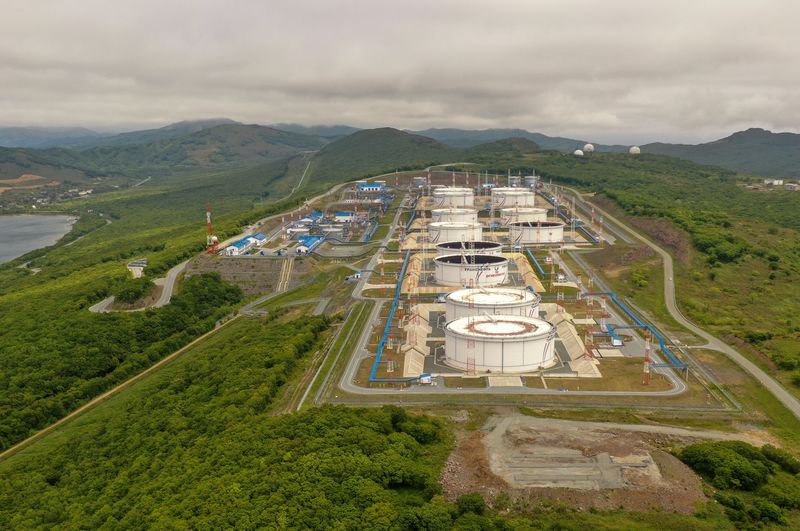By Nicole Jao
LONDON (Reuters) -Oil prices gained more than 3% on Thursday on concerns of a broadening conflict in the Middle East after Israel rejected a ceasefire offer from Hamas.
Brent futures closed up $2.42, or 3%, to $81.36 a barrel. U.S. West Texas Intermediate crude climbed $2.36, or 3.2%, to $76.22.
The Brent benchmark breached $80 a barrel and WTI rose above $75 a barrel for the first time in February.
Israeli forces bombed the southern border city of Rafah on Thursday after Prime Minister Benjamin Netanyahu rejected a proposal to end the war in the Palestinian enclave.
"The market is holding its breath on what the next potential fallout could be," said John Kilduff, partner with Again Capital LLC. Attacks on shipping by Iranian-backed Houthi rebels continued to disrupt global oil trading, he added.
A Hamas delegation arrived in Cairo on Thursday for ceasefire talks with mediators Egypt and Qatar.
In the U.S., a stronger than expected drawdown in gasoline and middle-distillate stocks also buoyed the oil market.
The draw in fuel stocks, combined with a rise in crude stocks, was a sign of U.S. refinery maintenance, Varga said.
"Ongoing U.S. refinery maintenance, together with Europe being short on diesel, can help maintain the positive sentiment for now," he added.
In Russia, damage to refineries from Ukraine's drone attacks and technical outages led to more crude exports than planned in February, potentially undermining the country's pledge to cut supplies under an OPEC+ pact, according to analysts.
Elsewhere, Norway's Johan Sverdrup oilfield - the largest in the North Sea - will maintain steady production at a higher rate of 755,000 barrels per day (bpd) for the rest of this year, Aker BP (LON:BP) said. Its original planned capacity was 660,000 bpd.

Demand growth remains healthy in large oil-consuming nations, including India and the U.S., said Giovanni Staunovo, analyst at UBS.
U.S. jobless claims fell slightly more than expected last week, the Labor Department said on Thursday, pointing to underlying job market strength.